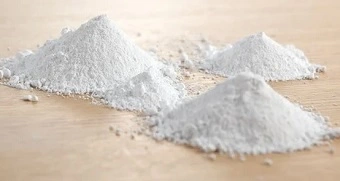Octadecanedioic Acid (ODDA): Bridging Innovation & Sustainability in Chemical Synthesis
05 Sep 2024 • by Natalie Aster

Octadecanedioic acid (ODDA), a long-chain dicarboxylic acid, is gaining great attention in the chemical industry due to its unique properties and growing potential in sustainable applications. As industries increasingly prioritize eco-friendly alternatives, ODDA serves as a crucial building block in the production of high-performance polymers, lubricants, and personal care products. With its blend of versatility, functionality, and environmental benefits, ODDA is helping bridge the gap between innovation and sustainability in chemical synthesis.
Renewable Sourcing & Sustainability
ODDA can be produced from renewable resources such as plant-based feedstocks or microbial fermentation, making it a more sustainable alternative to petrochemically derived dicarboxylic acids. This is particularly important as industries strive to cut down their carbon footprint and transition towards a circular economy. ODDA’s bio-based production methods also align with the sustainability goals of companies seeking to minimize waste and energy consumption. As the demand for greener and renewable alternatives increases, ODDA is positioned to play a critical role in fostering sustainable industrial growth.
Versatility in Chemical Synthesis
ODDA’s versatility makes it a valuable chemical intermediate in various chemical synthesis processes. Its two carboxylic acid groups and long hydrocarbon chain provide flexibility for the creation of a wide range of chemical products, including adhesives, coatings, and surfactants. This versatility allows ODDA to be used in diverse applications, ranging from industrial adhesives and paints to specialty chemicals and performance coatings. ODDA’s role in chemical synthesis is particularly important in industries that require high-performance materials with specific mechanical or chemical properties. As demand for customizable and high-quality chemicals continues to rise, ODDA’s position as a versatile building block will strengthen.
High-Performance Polymers
ODDA’s long carbon chain and functional groups make it an ideal monomer for creating durable, flexible, and thermally stable polymers, particularly polyamides and polyesters. These materials are extensively employed in automotive, aerospace, and electrical industries due to their strength, resistance to wear, and ability to withstand harsh conditions. As demand for lightweight and high-performance materials is skyrocketing, ODDA-based polymers are becoming increasingly in-demand to replace traditional, heavier materials without compromising strength or durability.
Moreover, ODDA’s renewable sourcing from bio-based feedstocks renders it a more sustainable alternative to petrochemical-derived dicarboxylic acids, aligning with the industry's shift towards greener materials.
Eco-Friendly Lubricants
ODDA is also vital in the production of esters that are key ingredients in high-performance lubricants with excellent thermal stability and low volatility. These lubricants are particularly valuable in automotive and industrial applications, where reducing friction and wear on machinery can notably improve energy efficiency and equipment lifespan.
As environmental regulations around the use of non-biodegradable lubricants tighten, the demand for ODDA-derived lubricants, which are both high-performing and eco-friendly, is on the rise. This trend is particularly strong in industries such as marine and aviation, where lubricant leakage or disposal can have considerable environmental impacts.
Personal Care & Cosmetic Products
ODDA is also gaining traction in the personal care and cosmetics sector, where it is used in skincare products owing to its ability to regulate sebum production and improve skin texture. ODDA derivatives, such as esters, are used in creams and lotions as emollients, offering moisturizing properties without leaving a greasy feel. ODDA’s long-chain structure helps in creating formulations that enhance skin barrier function, making it a popular ingredient in anti-aging and skin-repair products.
With consumers increasingly seeking natural and sustainable ingredients in their personal care routines, ODDA fits perfectly into the surging trend of “green beauty.” Its bio-derived origins and multifunctional benefits render it a valuable ingredient in eco-conscious product formulations.
Final Thoughts
ODDA is rapidly emerging as a key player in chemical synthesis, driving innovation while supporting the global shift towards sustainability. Its role in producing high-performance polymers, biodegradable lubricants, and eco-friendly personal care products highlights its versatility and importance across multiple sectors. As industries increasingly seek renewable, sustainable, and high-performing materials, ODDA is positioned to bridge the gap between cutting-edge applications and environmental responsibility.
Product Details:
Octadecanedioic Acid (ODDA) Market Report by Application (Polyester Polyols, Powder Coatings, Cosmetics, Lubricating Oils, and Others), End Use Industry (Automotive, Industrial, Medical, Construction, Cosmetics, Textiles, and Others), and Region 2024-2032
Published: August 2024
Pages: 150
Market Publishers boasts a rich collection of insightful research studies covering the chemicals and petrochemicals market, find it in the Chemicals & Petrochemicals Market Reports Catalogue.
CONTACTS
The Market Publishers, Ltd.
Natalie Aster
Tel: +357 96 030922
[email protected]
MarketPublishers.com
Analytics & News
